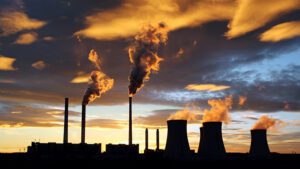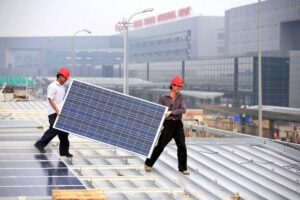As pressure mounts on the Albanese government to tax the super profits of oil and gas companies, a new Australian study says this kind of levy would be much more effective in delivering relief from high energy prices than a discount on petrol prices.
The study from Victoria University’s Centre of Policy Studies (CoPS) shows the six-month federal “policy experiment” to ease cost-of-living pressures by halving the fuel excise rate delivered only marginal benefits to the economy at a big cost to the national budget.
For consumers, the study finds the fuel excise – which ended last week – offered little benefit other than making people “feel a bit better” while filling up their cars.
Minimal relief
The study used economic modelling to show that the government’s intervention to temporarily cut fuel excise taxes from 44 cents to 22 cents offered minimal relief from the 53% hike in global oil prices linked to the Russia-Ukraine.
“When taking into account the need to finance this policy intervention through the federal budget, its impact on Australia’s economy was minimal,” said CoPS researcher Dr Xianglong (Locky) Liu.
“It did little more on a macroeconomic scale than help people feel a bit better when filling up at the pump.”
A much better solution, the researchers say, would be along the lines of the 25% levy introduced in May 2022 on oil and gas industry profits in the UK – or, more recently, as the European Union has agreed to do in just the past few days.
EU agrees to tax fossil fuel super profits
As the BBC reports, “a windfall tax is imposed by a government on a company to target firms that were lucky enough to benefit from something they were not responsible for – in other words, a windfall profit.”
EU governments on Friday agreed to impose emergency measures to introduce a tax on these windfall benefits, including a levy on fossil fuel firms’ surplus profits and a levy on excess revenues made from surging electricity costs.
As the VU report notes, Australia, despite being a net energy exporter of gas and coal, does not benefit much from higher global prices of energy exports, as these sectors are mainly foreign-owned and higher profits largely flow to overseas investors.
Thus, the study found that a tax on these profits – at a time of global energy crisis – would be a much better mechanism to address the downturn in household income and consumption than the fuel excise cut.
Sharing the spoils of high oil prices
More specifically, the research team found that reorienting part of the windfall financial gains from largely foreign-owned LNG producers to domestic households would mitigate just over two-thirds of the potential damage on private consumption caused by high oil prices.
“While a 50% fuel excise cut had little impact on household incomes and consumption, a 25% UK-style energy profits levy on Australia’s largely foreign-owned LNG producers might be more effective in improving the budget,” said Liu.
“This kind of levy should be considered as a valuable addition to the taxation toolbox for Australian policymakers when they assess how to best help households cope with financial hardship caused by energy price inflation.”
Pressure mounts in Australia
The study’s findings come as former ACCC chief Rod Sims becomes the latest to call on federal Labor to tax oil and gas company super profits as part of a series of proposed tax reforms.
“It’s really unhealthy for society having companies make huge gains when others in society are suffering those same high prices,” Sims told Nine Newspapers on Monday.
“With the prices as high as they are, I think it’s most unlikely that people would think there’s a fair share of revenue coming to the Australian public from these projects,” Sims said. “It needs to be looked at now.”
For its part, the gas industry is putting a case that it is already putting its fair share of money back into the Australian economy.
New chief of the Australian Petroleum Production & Exploration Association Samantha McCulloch said on Monday that industry exports would deliver around $9 billion more in taxes and royalties this financial year, adding up to a total contribution of almost $14 billion.
“The return on our $300 billion investment in LNG projects is clear to see,” McCulloch said.
Super profits
Australia’s largest energy company, Woodside Petroleum, in August posted a half-year underlying profit of $US1.819 billion, a 400 per cent increase on the same period a year ago.
Santos, meanwhile, in July announced a massive 85 per cent jump in revenues for the first half of the year – surging to $3.8 billion – despite just a mere 9 per cent increase in oil and gas production.
Federal treasurer Jim Chalmers has previously ruled out the imposition of a windfall profits tax in Australia, saying in July it “is not something that we are considering”.
More recently, Chalmers has been flagging the start of a national policy conversation on how Australia might need to change its tax arrangements, including in areas like multinational taxes.









